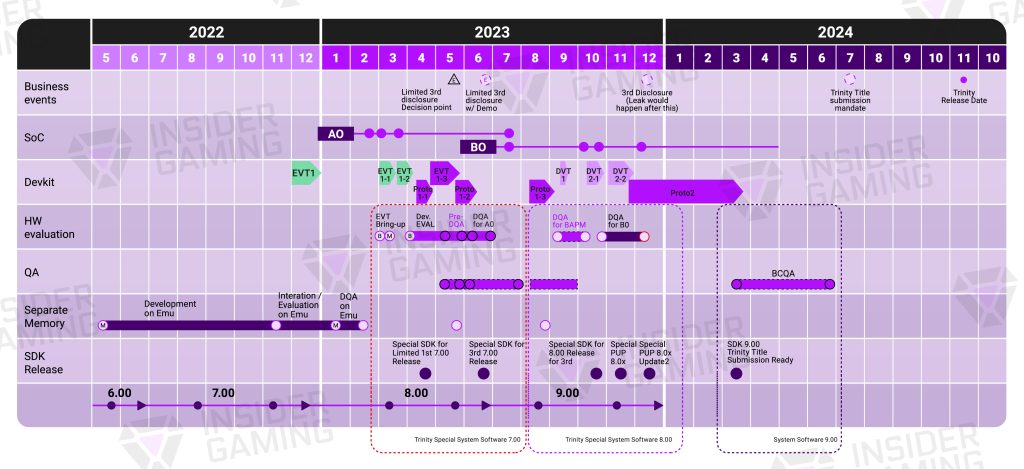Earlier this month, PlayStation revealed the PlayStation 5 Pro, and despite initially receiving a ton of backlash due to its price point, the console has seemingly started to grow on people. Digital Foundry’s fantastic Final Fantasy 7 Rebirth comparison seems to be the catalyst to change minds, and, by the community’s reaction, was a far better way to show off the capabilities of the PlayStation 5 Pro.
However, with comparisons and improvements aside, I wanted to conclude my Trinity (the codename for the PlayStation 5 Pro) reports with an inside look at its development. To start, let me clear the air on a lot of the rumors that have circulated in the community ever since the PlayStation 5 was even released: the PlayStation 5 Pro has had only one SKU, and any rumors before April 2022 are either educated guesses or well… just made up. Trinity began with preliminary talks and discussions in Q1 2022, with the development process starting in late April 2022 / May 2022, and it’s almost impossible to believe that anyone involved during these stages would leak.
The PlayStation 5 Pro took 31 months to develop from start to release. I previously reported that number to be 19 months, but I had mistakenly looked at Q Lite (PlayStation Portal) documents instead, whoops.
With permission from my sources, I’ve created a complete development timeline for the PlayStation 5 Pro from its start to its eventual release, which you can see below.

While it’s worth mentioning that every company may have a variance on how things are done, there are a few terms and things to note to better explain what’s being shown:
- Protos are small tests of key concepts for an in-development product.
- EVT stands for Engineering Validation Test. These are usually done on first prototypes of hardware and equipment. They are done to identify issues that need to be fixed within a design. Units usually fully functional and able to be tested.
- DVT stands for Design Validation Test. Done after EVTs and, usually, Protos. Purpose of DVT is to take one production-worthy design after an EVT and test a mass production of them to determine confidence in full production.
- DQA stands for Data Quality Assessment which helps determine if data is accurate and reliable.
- AO and BO – This is meant to be “A0” and “B0” (a common stage term used in chip design)
It’s a great insight not really shared publicly before and for those who are curious on how long a console actually takes, well, there you go. While I imagine the PlayStation 6 will take a bit longer, recent reports on PlayStation signing off on the console chip suggest they are likely on track for a 2028 release date (I couldn’t yet verify independently).
So what do you think of the PlayStation 5 Pro development timeline? Did you think it took companies longer or shorter to develop them? Let us know on the Insider Gaming forum, where we’re also giving away a PlayStation 5 Pro to one lucky member that signs up!
For more from Insider Gaming, check out the new 30th anniversary of the PlayStation 5 that Sony will soon be releasing! And don’t forget to sign up for our weekly newsletter.











2 replies
Loading new replies...
Moderator
Moderator
Join the full discussion at the Insider Gaming Forums →